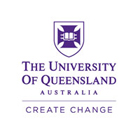- Tin tức & bài viết
- Find usIDP AustraliaIDP BahrainIDP BangladeshIDP CambodiaIDP CanadaIDP ChinaIDP EgyptIDP GhanaIDP Hong KongIDP IndiaIDP IndonesiaIDP IranIDP JordanIDP KenyaIDP KoreaIDP KuwaitIDP LebanonIDP MalaysiaIDP MauritiusIDP Middle EastIDP NepalIDP New ZealandIDP NigeriaIDP OmanIDP PakistanIDP PhilippinesIDP Saudi ArabiaIDP SingaporeIDP Sri LankaIDP Taiwan, ChinaIDP ThailandIDP TurkeyIDP UAEIDP VietnamIDP Corporate
- Social
- Tiếng Việt
- Where we operate
- Courses
- Scholarships
- IELTS
- About IDP
- Dịch vụ sinh viên
- Tin tức & bài viết
- Find us
- Find us
- Tìm văn phòng IDP gần nhất
- IDP Australia
- IDP Bahrain
- IDP Bangladesh
- IDP Cambodia
- IDP Canada
- IDP China
- IDP Egypt
- IDP Ghana
- IDP Hong Kong
- IDP India
- IDP Indonesia
- IDP Iran
- IDP Jordan
- IDP Kenya
- IDP Korea
- IDP Kuwait
- IDP Lebanon
- IDP Malaysia
- IDP Mauritius
- IDP Middle East
- IDP Nepal
- IDP New Zealand
- IDP Nigeria
- IDP Oman
- IDP Pakistan
- IDP Philippines
- IDP Saudi Arabia
- IDP Singapore
- IDP Sri Lanka
- IDP Taiwan, China
- IDP Thailand
- IDP Turkey
- IDP UAE
- IDP Vietnam
- IDP Corporate
- Social
- Ngôn ngữ
- IDP Education /
- Cao đẳng và Đại học /
- Australia /
- The University of Queensland /
- Bachelors of Journalism and...

Bachelors of Journalism and Bachelor of Arts - Sociology
At THE UNIVERSITY OF QUEENSLAND
Vị trí
Australia
Bằng cấp
Dual Degree
Chi phí
AUD41120
(2025)
Độ dài khóa học
4 Year(s)
Học kỳ tiếp theo
20 February 2025
Điểm đầu vào
6.5
IELTSCOURSE_INFO
Put simply, sociology is the study of society, but it also provides a lens for seeing society in a particular manner and studying it through scientific analysis. Thinking sociologically involves identifying social rather than individual explanations for social problems such as poverty, unemployment, inequality and disadvantage. Sociology asks critical questions about why society is organised in particular ways; who benefits from this state of affairs; who is disadvantaged by it; and how we might work together for a better world. As a science of society, sociology uses rigorous research methods to collect and analyse data to answer these questions and produce theories about the way the world works. Sociology graduates develop a range of skills including problem solving skills; the ability to synthesise information; an ability to understand the complexity of social problems, their causes and consequences; and the ability to communicate complex ideas to different audiences. They also develop skills in project management and collaborating as part of a team, often working with partners from across disciplines and sectors. These are vital skills that are valued by employers across all industries.
- Học bổng Xem tất cả học bổng
- Thực tập
Yêu cầu đầu vào đối với The University of Queensland
International Baccalaureate Diploma - 29
IELTS overall 6.5, reading 6, writing 6, speaking 6, listening 6. For other English Language Proficiency Tests and Scores approved for UQ
TOEFL IBT - Overall 87, listening 19, reading 19, writing 21 and speaking 19.
Hạn chót nộp đơn
The application deadline isn't available Speak to an IDP counsellor for more detailed information
Further information
If you aren't eligible for the above entry requirements, you might ant to explore pathway options at The University of Queensland. If you want to find out more, speak to our counsellors.
Bảng xếp hạng các trường Đại học trên Thế giới
Học sinh của chúng tôi nghĩ gì
Chúng tôi chưa nhận được bất kỳ đánh giá nào cho trường này.
CRICOS CODE: 029214C
Được đề xuất cho bạn
- Đại học
- Australia
- DEADLINE: 07 Jan 2025
- Hình thức hỗ trợ: Fee waiver/discount
- Đại học
- Australia
- Hình thức hỗ trợ: Fee waiver/discount
- Đại học
- Australia
- Hình thức hỗ trợ: Other Discount
- Đại học
- Australia
- Hình thức hỗ trợ: Fee waiver/discount
- Đại học
- Australia
- Hình thức hỗ trợ: Fee waiver/discount
- Đại học
- Australia
- DEADLINE: 31 Oct 2025
- Hình thức hỗ trợ: Fee waiver/discount
- Đại học
- Australia
- Hình thức hỗ trợ: Fee waiver/discount
- Đại học
- Australia
- Hình thức hỗ trợ: Free products/services
Your action plan
Bước 1
Shortlist your courses
Choose the best three courses you’re most likely to pursue.
Bước 2
Check your eligibility
Get an instant in-principle offer for courses with the IDP FastLane tag.
Bước 3
Apply through IDP Live
Fill out the form once and use it to apply to multiple courses.
IDP FastLane hoạt động như thế nào?
Với 'Ưu đãi về nguyên tắc' của FastLane, bạn sẽ biết khả năng trúng tuyển của mình chỉ sau vài phút.
Chọn trường và khóa học
Tạo hồ sơ học tập của bạn
Gửi đơn đăng ký của bạn để nhận "Ưu đãi về nguyên tắc"
(Các) tổ chức bạn chọn sẽ gửi cho bạn quyết định sau vài phút!
Hãy sẵn sàng đăng ký với chuyên gia tư vấn




